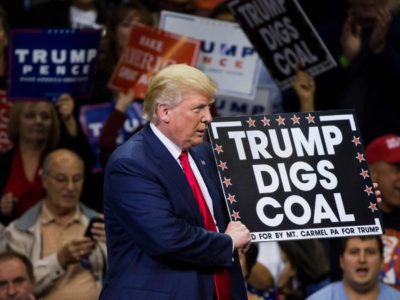Thoughts on SB 131
Overall a good bill, but the definition of natural and protected lands is inadequate
Governor Newsom is pushing for CEQA reform as part of approval of the state budget, and the result is two budget trailer bills, AB 130 and SB 131, that together provide some of the most significant changes to CEQA in many years. Overall, these are good bills. The changes are focused on facilitating development where it is on net beneficial to the environment, and not in places where it would harm important natural resources. The facilitation of urban infill in AB ...
CONTINUE READINGHow To Botch A CEQA Analysis
LA Metro's draft EIR for the crucial Sepulveda Transit Corridor is thorough and careful, but it misses a key point: heavy rail is environmentally superior.
If you are from Los Angeles, you will get this. Q: What’s the best thing about the 405? A: Free parking. The 405 is the highway that runs down the west side of metropolitan Los Angeles, connecting the San Fernando Valley to west Los Angeles, down through the South Bay and into Orange County. Even by Los Angeles standards, it’s a nightmare. The trouble is that there is no real transit option. You can get across the Valley on rapid bus, and starting in ...
CONTINUE READINGThe Emperor’s New Endangerment Theory (Wrap-Up)
Trump's EPA says carbon emissions from U.S. power plants are too insignificant to regulate.
U.S. power plants emit 1.5 billion tons of carbon dioxide a year, a little less than the entire country of Russia. The Trump Administration is proposing to end all regulation of carbon emissions by power plants, on the theory that these emissions should be considered insignificant. There are two parts to EPA's argument: first, that the statute requires EPA to make a finding that those specific emissions cause significant harm, and second that the emissions are actually...
CONTINUE READINGThe Emperor’s New Endangerment Theory (Part III)
How did EPA get to the absurd conclusion that 1.5 billion tons of carbon emissions aren't significant? Well might you ask.
EPA has managed to come to the conclusion that carbon emissions from the power sector do not significantly contribute to climate change. No, I'm serious -- even though power plants emit a billion-and-half tons of CO2 a year (a quarter of all U.S. emissions), EPA's solemn conclusion is that they're no biggie. My prior posts (here and here) show how EPA's new endangerment requirement makes little sense given the language of the Clean Air Act and EPA's prior implementa...
CONTINUE READINGWhat Have We Learned About Rebuilding from Fire?
Woolsey Fire survivors reflect on the rebuilding process and what might help rebuild more resiliently after the January fires.
When I first met Nicole Fisher in 2019, her property in the Santa Monica Mountains was nothing but a driveway and a pile of cement. I was interviewing the art teacher for a radio story about her family’s plans to rebuild after the 2018 Woolsey Fire that destroyed her home and hundreds of others in Malibu. At that time, Malibu was still reeling. As we talked, her dogs ran circles around the property, like they were searching for their missing house. Six ye...
CONTINUE READINGThe Emperor’s New Endangerment Theory (Part II)
To justify a decision not to regulate CO2 from power plants, EPA had to twist statutory language beyond all recognition.
According to EPA, carbon emissions from the U.S. power sector are too insignificant to warrant regulation. This is a bizarre conclusion: U.S. power sector’s emissions are around 6.5 billion tons, just below Russia’s total emissions from all sectors. Before making this "insignificance" finding, EPA first had to offer a novel reading of the Clean Air Act (CAA). EPA says that before it could properly regulate those emissions, it would first have to make a formal fin...
CONTINUE READINGThe “Big Beautiful Bill” is One Damn Dirty Deal
The Drain is a weekly roundup of environmental and climate news from Legal Planet.
My family is about to take a road trip. Out our window we will see beaches, lakes, and a whole lot of public land that would be eligible to be sold off to developers and corporations under the recent version of a budget bill that Republicans want to rush through this week. Welcome to The Drain, a weekly roundup of environmental and climate news. Subscribe to the newsletter here. There are many unpopular ideas in the Republicans’ mega bill, known officially a...
CONTINUE READINGThe Emperor’s New Endangerment Theory (Part I)
EPA says the electricity sector’s climate impacts aren’t significant. Really??
EPA has proposed a novel reading of the Clean Air Act (CAA) that would foreclose any regulation of CO2 emissions from power plants. EPA’s core argument is that the statute requires it to determine whether an industry’s emissions “cause or contribute significantly” to climate change and that the industry’s carbon emissions don’t meet that standard. On its face, this seems like a questionable conclusion, given that the U.S. power industry’s emissions are...
CONTINUE READINGHere’s How the Palisades and Altadena Can Rebuild Better
In partnership with UCLA, the Blue Ribbon Commission on Climate Action and Fire-Safe Recovery has released its final recommendations.
The January 2025 Los Angeles fires were one of the most expensive climate disasters in our country’s history. They displaced tight-knit communities, took lives, shook our region to its core, and reminded us that as the climate continues to change, the risk of future disaster looms large. This recognition lead County Supervisor Lindsey Horvath to form the Blue Ribbon Commission on Climate Action and Fire-Safe Recovery (BRC), an expert commission tasked—with research ...
CONTINUE READINGMajor permitting reform will (likely) be bipartisan
Senate parliamentarian shoots down effort to use “pay to play” to avoid judicial review of NEPA
Several weeks ago I wrote about an effort by House Republicans to use reconciliation, a process which avoids the Senate filibuster, for a “pay to play” proposal to gut NEPA. The proposal would have allowed sponsors of projects going through NEPA review to pay an extra fee and avoid judicial review of the NEPA review. My prediction was that, if the provision was enacted, administrations would lowball the fee (which is based on the estimate of the cost for NEPA com...
CONTINUE READING











